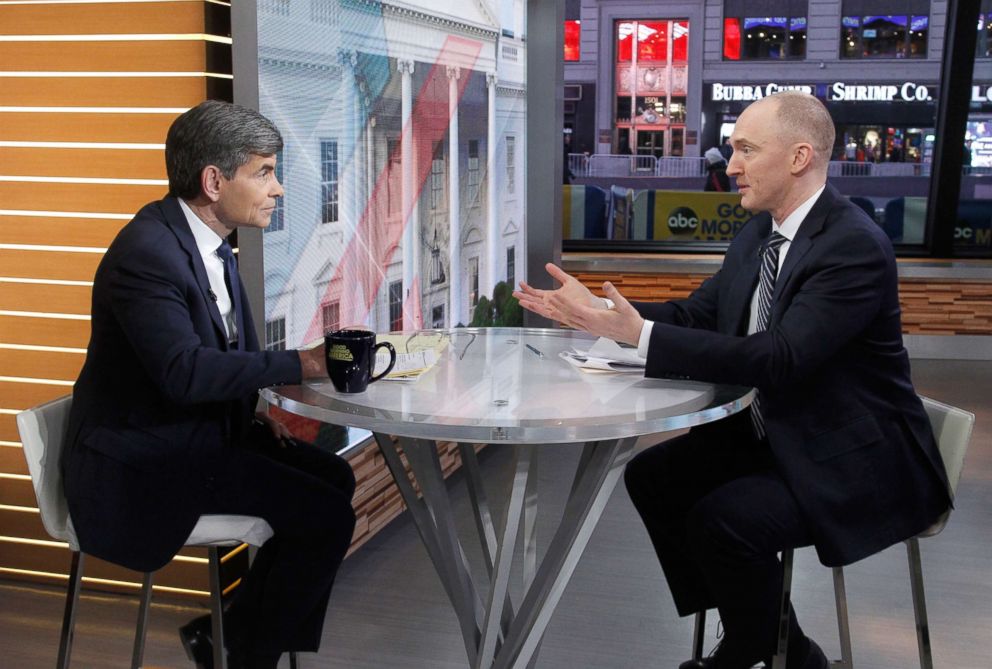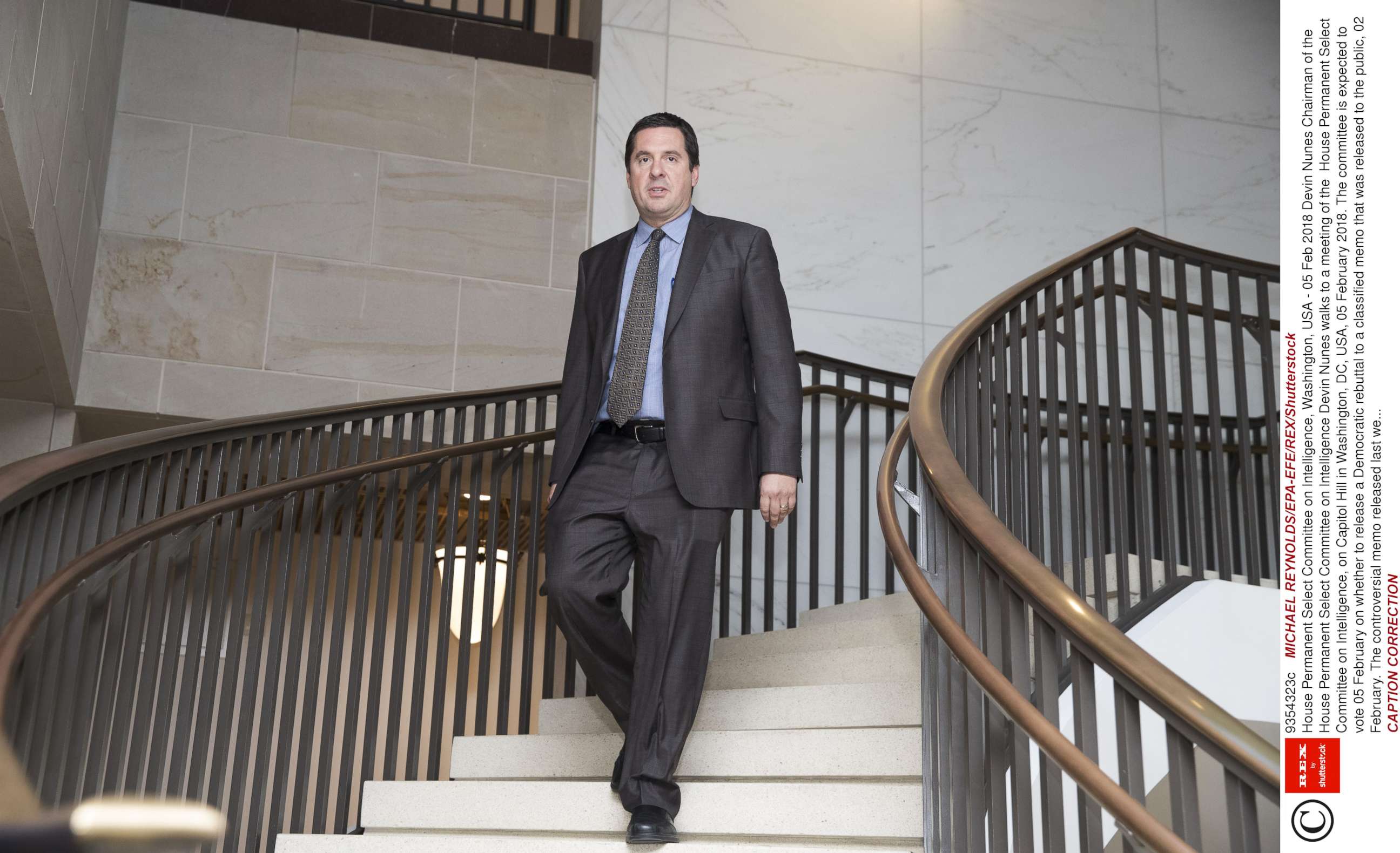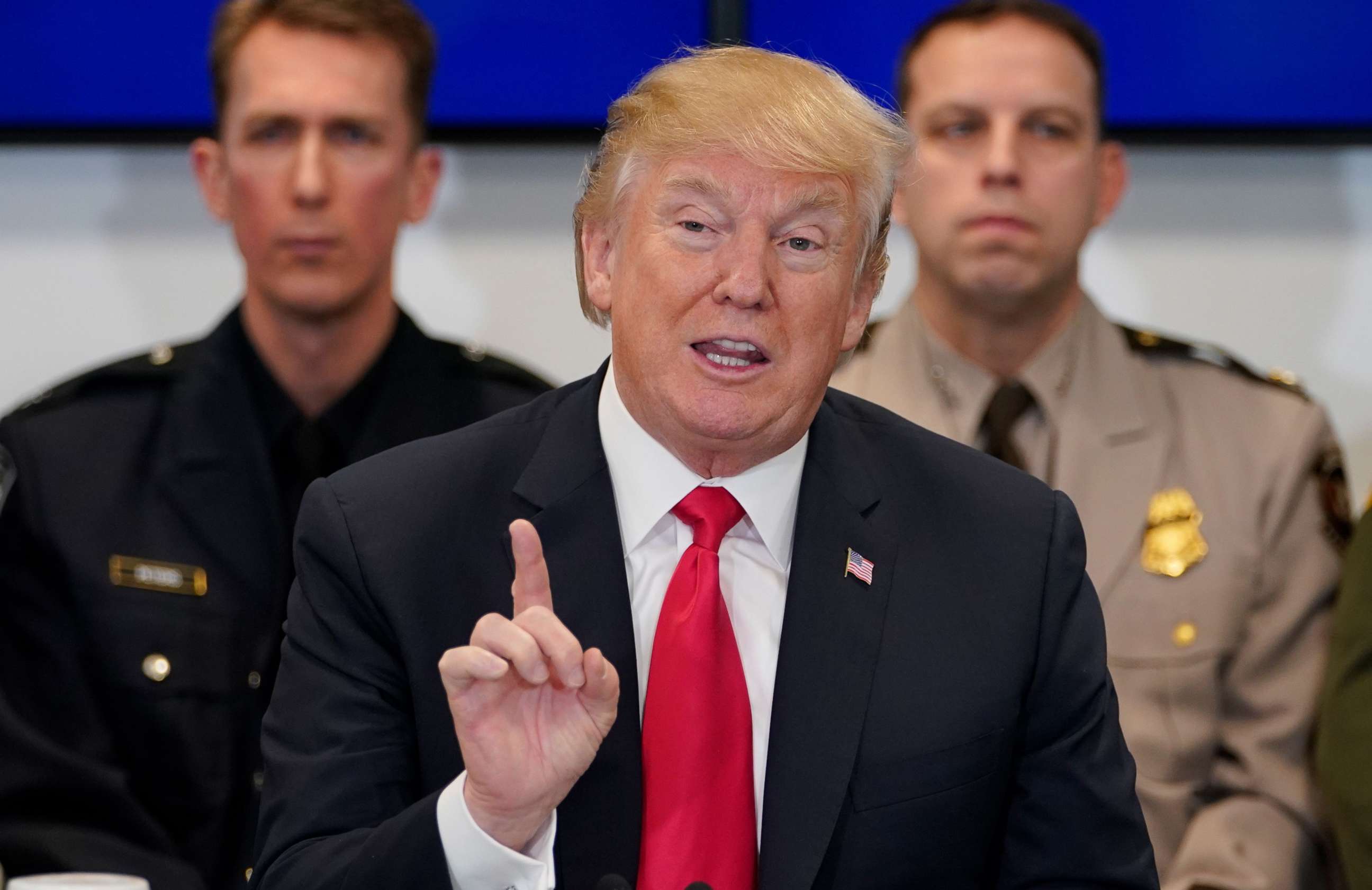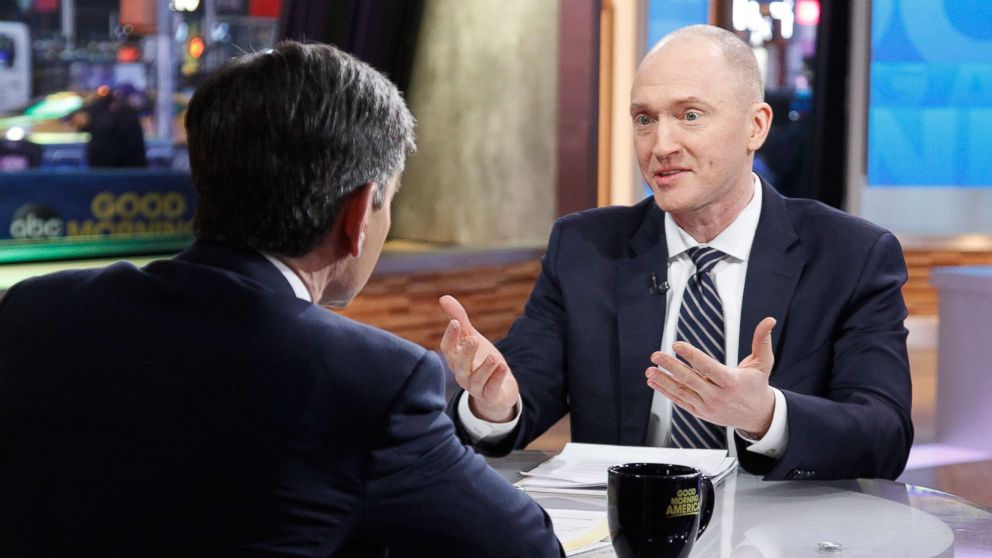Carter Page: FBI 'shredded' Constitution by eavesdropping on me
— -- Carter Page, the Trump campaign volunteer who was monitored by the FBI after his visits to Moscow, said he expects to be vindicated as more information about his case is released.
“What I’ve seen thus far is just complete ridiculousness,” Page told George Stephanopoulos on ABC News’ Good Morning America on Tuesday.
Page told ABC News there was “no basis” for the FBI to eavesdrop on him. “It was just shredded – the Constitution.”
Page has found himself at the center of a political debate raging in Washington over what exactly motivated the investigation into Russian interference in the 2016 elections. Last week, over objections from the FBI and Department of Justice, President Trump allowed House Republicans to publish a secret memo that sharply questioned the justifications the FBI gave for engaging in electronic surveillance on Page.

The memo, drafted by House Intelligence Committee Chairman Devin Nunes, said the FBI relied too heavily on the so-called “dossier” – an uncorroborated report funded in part by Democrats compiled by a former British spy -- to gain court approval in October 2016 to monitor Page. That represented a “troubling breakdown” in the process established to protect Americans from government intrusions into their private lives, the memo said.
After declassifying the memo on Friday, President Trump called the FBI’s actions “a disgrace” and said “a lot of people should be ashamed.”
Page said the findings in the Nunes memo matched his own long-held belief that the attention on him was politically motivated. He told ABC News he was reminded of a letter he sent to then-FBI Director James Comey in September 2016, after news reports began raising questions about his travels to Russia.
“These desperate and unfounded calls for my investigation as a private citizen to advance political interests based on nothing more than preposterous mainstream media reports is a true disgrace,” he wrote to Comey at the time.
Democrats in Congress have argued the FBI had far more to support their case for their federal court application to monitor Page than is evident in the Nunes memo. On Monday, the House intelligence Committee voted to allow the release the Democrats assessment of that evidence.

The New York Times has launched an effort to have authorities release the entire application the FBI submitted to a federal court to justify monitoring Page. Page told Stephanopoulos Tuesday morning he “appreciates” that effort.
“I hope they get it,” he said.
Page, a U.S. Naval Academy graduate who had years of experience as an energy consultant in Russia, joined the Trump campaign as a foreign policy advisor. But he said he only served briefly and never met Trump.
While the contents of the Democratic memo remain under seal, there are elements of Page’s background that lawmakers have referenced in arguing that the FBI’s suspicions of Page were justified.
Two years before joining the Trump campaign as a foreign policy adviser, Page had described himself as “an informal advisor to the staff of the Kremlin” in a private letter made public this week by Time Magazine. Page said he used that description in connection to meetings he held in advance of an international summit about global energy issues.

Page told Fox News Monday night that the letter was “totally taken out of context.”
Around that same time, Page was also being targeted for recruitment as an intelligence source by Russian spies promising favors for business opportunities in Russia, according to a sealed FBI complaint.
Page confirmed to ABC News that he is the individual identified as "Male-1" in a 2015 court document submitted in a case involving the Russian spies. In the FBI court filings, spy recruiters were overheard speaking about "the attempted use of Male-1 as an intelligence source for Russia," the court record says. The recruiter says he "promised Male-1 a lot" and told him he would use his "connections in Russia" to "push contracts" his way. "For now, his enthusiasm works for me," the recruiter says of Page.
Page told ABC News he helped the FBI in that case, and that none of the materials he shared with Russian nationals were sensitive. “It sounds a lot worse than reality,” he said.




